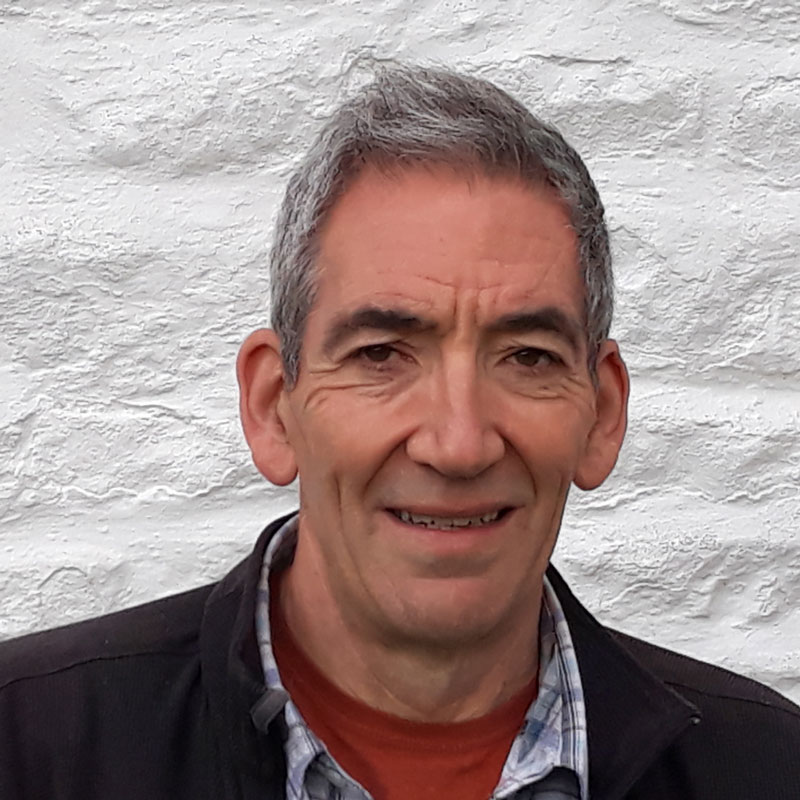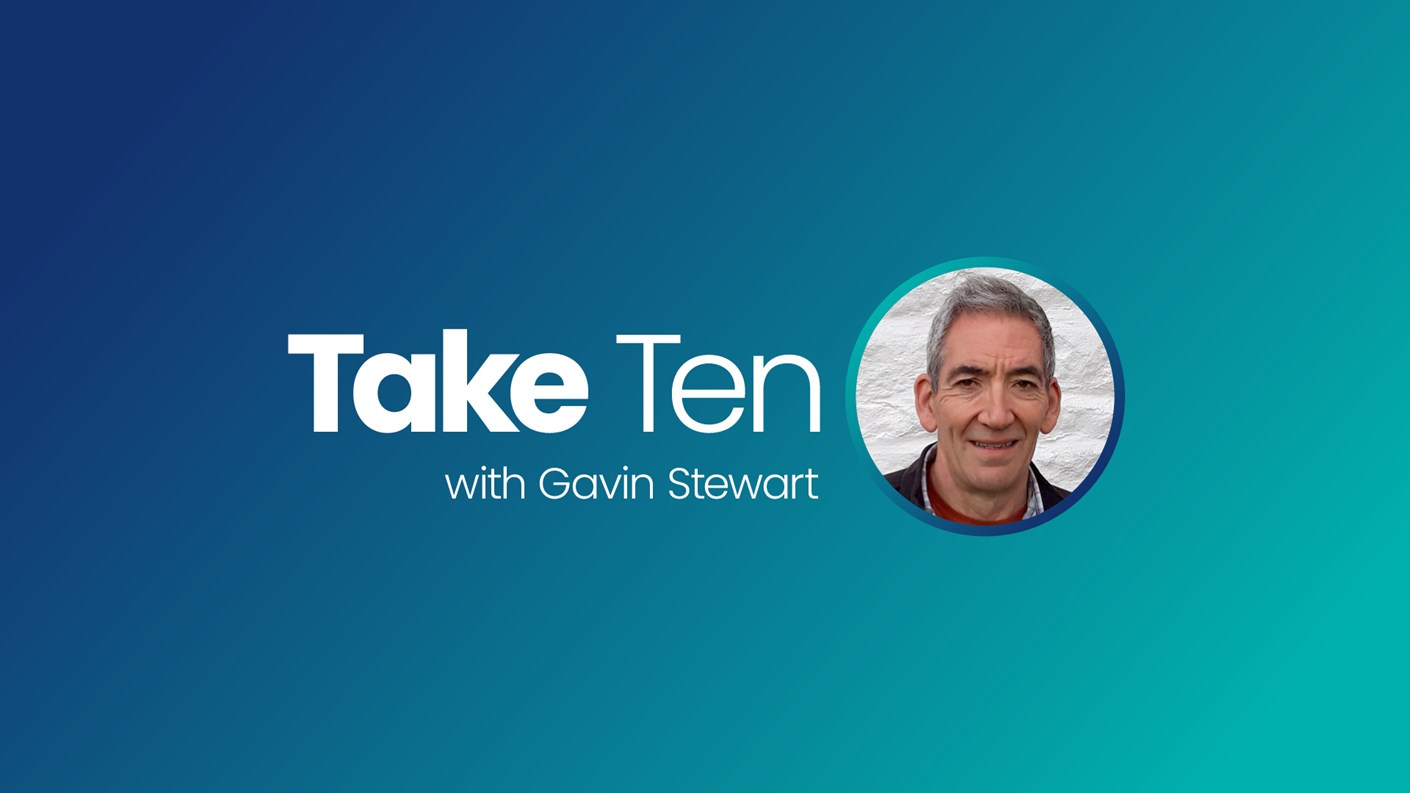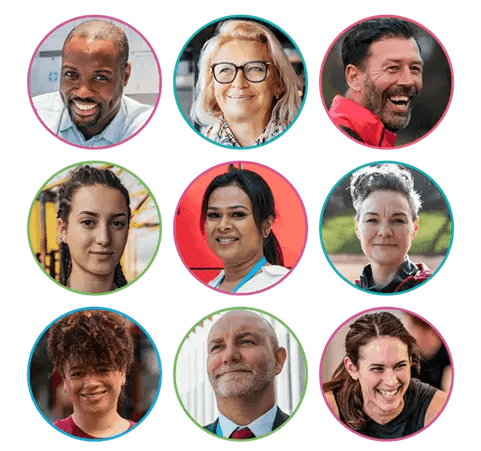Take ten with Gavin Stewart – committee spotlight
We ask Gavin Stewart, member of the CIMSPA Board of Trustees, ten questions about his work, the board and its importance
We are sharing a series of features that shed light on what the boards, committees and panels that govern CIMSPA do by talking directly to the valued members that steer them.
In each article of the series, we will talk to a member of one of the boards, committees and panels, asking them ten questions to find out more about each group’s essential work. In doing so, the members themselves will provide a true insight into the focus and importance of each division of CIMSPA’s governance.
We will also hear about the member’s own background, role and thoughts about the sport and physical activity sector, showcasing the fantastic individuals that come together to support CIMSPA.
This month, the spotlight is on Gavin Stewart, who has been part of the CIMSPA Board of Trustees since April this year.
What is your current job?
 I stopped full-time work in February last year. Before that, I spent my career in financial regulation – I worked for the Bank of England, the Financial Services Authority and then the Financial Conduct Authority.
I stopped full-time work in February last year. Before that, I spent my career in financial regulation – I worked for the Bank of England, the Financial Services Authority and then the Financial Conduct Authority.
Now I spend most of my time writing. I write about regulation, how it works and why regulators behave the way they do. I also write fiction and have published a couple of novels.
It’s great that I now have more time to see friends, travel and participate in the sport and physical activity sector through organisations like CIMSPA again.
What is your connection to the sport and physical activity sector?
I learnt to row at university, then rowed internationally for nine years and went to two Olympic Games.
After that, I started doing voluntary work in the sector. I became an athlete representative for British Rowing, and then through that I got involved with the British Olympic Association Athletes Commission, which I chaired for five years.
I then moved on to join the board of UK Sport and chaired the National Lottery awards panel. Through the panel, I worked on distributing lottery funding for the Sydney and Athens Olympic and Paralympic Games. I stopped in 2004, but it’s great that I have more time to get involved again now.
Why did you become a board member?
Marc Woods, the Chair of the Board of Trustees, approached me about the position. The board had done a lot of research and my background in sport and regulation fitted what they were looking for.
The timing worked for me, too. I’d given up doing sports administration work 20 years ago, but having recently stopped full-time work, I was able to reassess what I wanted to do with my time. I’ve always cared about sport – not only at the top level, but also its wider place in society. Because CIMSPA works to build recognition for the sector, it’s something I really wanted to be a part of.
Since joining, it’s been a steep learning curve for me in terms of understanding CIMSPA’s role, particularly with regard to physical activity, where I have much less experience. It’s really interesting for me sitting around the table with people from a range of different backgrounds that represent the very wide remit that the Institute has.
How would you describe the work of the Board of Trustees?
CIMSPA has expanded enormously over the past 12 years since gaining its chartership. In that time, it has also been maturing. The organisation is being asked to do more things and trying to do what it already does better.
As the ultimate decision-making body within CIMSPA, we are responsible for determining the organisation’s strategy and ensuring that its leadership is reliable and in line with legal and regulatory requirements. Through this, we ensure that CIMSPA is able to achieve all that it is asked to do and can continue growing and doing what it does best.
Why is the board’s work important?
I think sport and physical activity are a key to unlock a lot of things, both for individuals and society as a whole. That includes health, wellbeing, personal fulfilment, economic productivity, community cohesion and many more elements of life.
So, because of that, it’s really important that the quality and integrity of the people involved in delivering sport and physical activity is very high. It’s essential that the public and politicians and the media can have a justifiable sense of confidence in that quality and integrity.
CIMSPA needs to do a good job, and needs to be seen to be good, for people to have confidence that the sector as a whole is on top of its responsibilities. The knock-on effect of achieving this is making the sector a more attractive place to work because individuals have had positive experiences and want to get involved.
What is a highlight of the board’s work since you joined?
A highlight for me has been helping to steer and being involved in the CIMSPA Workforce Governance and Registration Scheme Project. As well as the board’s work as a whole, Tara Dillon and Marc Woods have used me as a sounding board for parts of it because of my past experience in sport and regulation.
With the high-profile scandals and reports like the Whyte Review in the media, it’s extremely important that we work on projects like this, exploring the feasibility of a national registration scheme. We need to identify the gaps in provision and what is achievable for the sector so that we can support the frontline workforce to deliver a high-quality service to participants in sport and physical activity.
Working on the project has also been a highlight because of how it has been managed. I know how difficult it is to get sporting bodies of different sizes with vastly different levels of resources and with a range of backgrounds and cultures to come together and collaborate on the same project. A lot of work was done to get to this place before I joined the board, and I feel privileged to be involved at this stage.
Why is participating in the sport and physical activity sector important to you?
I participated and competed in sport before lottery funding was available and have seen the difference that it has made to allowing people to get involved in sport and physical activity. Because of that, I wanted to use my experience and overview of the sector to help further other positive changes in the sector.
I know how important sport and physical activity can be in improving people’s lives as a whole. The diverse composition of the board is important in creating a genuine overview of the sector, allowing us to look ahead make real impact on as many individuals as possible.
I’m happy to be a small piece in a much bigger puzzle of improving sport and physical activity for both participants and the workforce at every level, from grassroots and community initiatives to elite sport.
What challenges do you see in the sector going forward?
There are many interconnected challenges – improving the sector is really complicated to get right. We want to get to a place where the workforce, equipment and facilities are all adequate for participants to have an excellent experience. We need to get the governance right and create a balance between participation, inclusion and excellence. None of those things are simple.
We’re always trying to find ways of improving what we’re doing. To justify more resources for the sector, we need to help people to understand how much the sport and physical activity sector can contribute to other agendas.
Everyone knows that sport and physical activity are good things, but they are often viewed more as a ‘nice to have’ than something that is relevant to a broad range of public and government priorities. We need people to see them as central to British society and the economy, enabling a lot of other elements to function better. It’s not just a hobby.
We need to create confidence in the sector so that we can unlock resources and budgets. This is particularly important for the health and education sectors – we are closely linked to them, and their budgets are much greater, so we need to work to ensure that they prioritise sport and physical activity in their plans and solutions.
What opportunities do you see in the future?
The other side of these challenges is opportunity. There are real opportunities to unlock resources and put the sport and physical activity sector in a more central position in terms of how the UK functions. They play a critical role in society, from education to physical and mental health to community cohesion.
I believe that sport and physical activity are essential to improving people’s lives, whether it’s dance or football or visiting the gym. That’s true for individuals of all ages and all abilities. Having the opportunity to be active is fundamental to our humanity. Embedding this mindset across all sectors and the general public will provide the opportunity to improve the economy and people’s wellbeing.
What would you say to someone thinking of becoming a CIMSPA board member?
First of all, it’s a hard and serious job, so you need to want to do it. On the other hand, it’s a chance to make a proper difference and to help increase the capacity and capability of a sector that can contribute a huge amount to people’s lives.
What CIMSPA does is a significant piece of the sector’s jigsaw. There are many others, but as a member of the CIMSPA Board of Trustees, you become part of that. You don’t independently change the world, but by helping to ensure that CIMSPA gets its job right, the chances of the whole sector improving are that much higher.
The role doesn’t need to be hugely time consuming, but the challenges that we tackle are real and they’re hard to solve – we have a lot of responsibility. It’s fun along the way, though – Marc is a great Chair and the variety of people – the breadth of knowledge – is fantastic.
Being on the board is an education and a pleasure for me.


